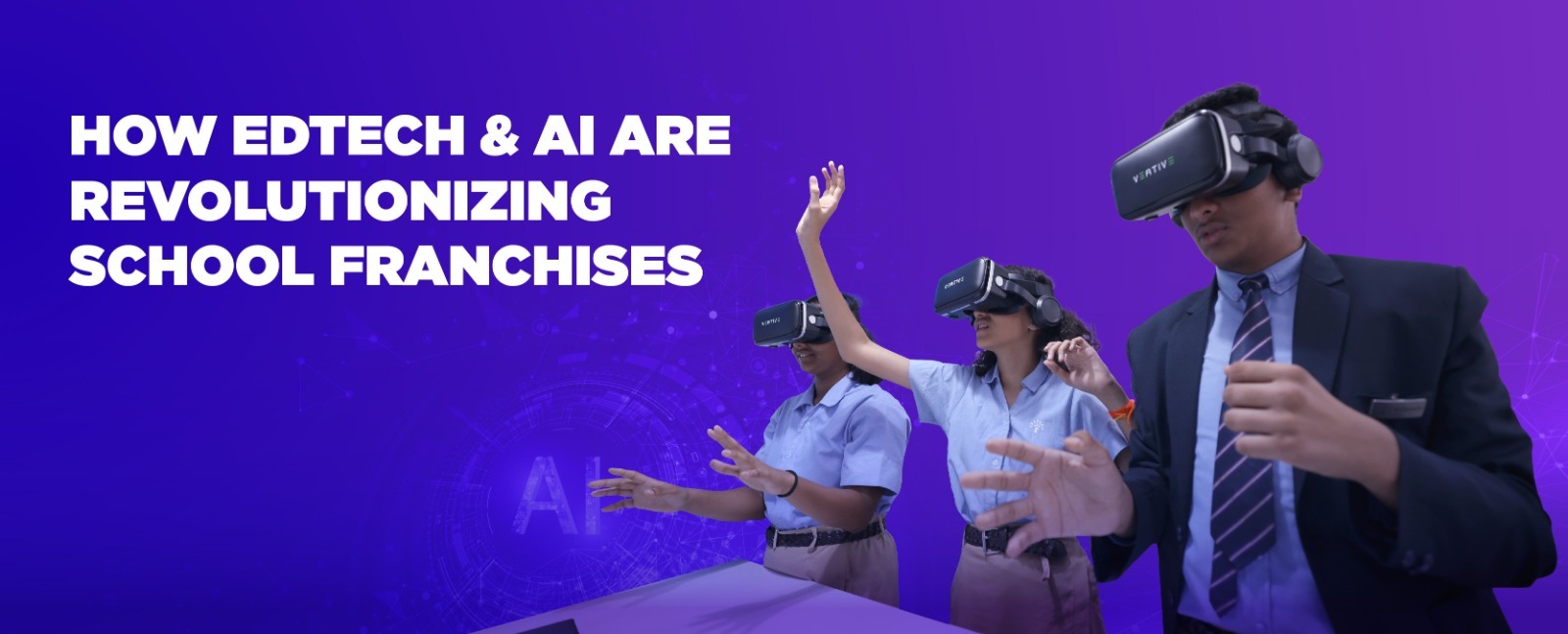As with the rapidly changing educational scene today, school franchises are changing their business practices by employing artificial intelligence (AI) and educational technology (EdTech). Institutions such as Podar Smarter School use these to aid in more student-specific learning, simplify paperwork, and improve general efficiency. The change digital offers is turning the tide in terms of how schools teach and how easily education becomes available to more people.
Enquiry Form
1. AI Used in Personalized Learning
AI platforms are empowering schools to provide students with differentiated learning experiences in line with their strengths and limitations. The principal applications include:
- Adaptive Learning Platforms: AI computes student performance in real time and automatically adjusts lesson difficulty and suggests personalized study materials.
- Intelligent Tutoring Systems: Virtual AI teachers give immediate feedback and directions, helping learners understand hard concepts at their own speed.
- Data-Driven Insights: AI analytics can be used by schools to monitor student progress and detect knowledge gaps, enabling teachers to intervene accordingly.
2. Automating Administrative Work
Operating a school franchise entails tedious administrative tasks. AI-based automation is easing these tasks, enabling teachers to teach more. Major advantages are:
- Automated Attendance & Grading: AI-powered systems automate attendance and test grading, liberating teachers from drudgery.
- Parent & Student Inquiry Chatbots: Chatbots powered by AI offer prompt feedback to recurring questions, boosting parent-teacher relationships.
- Maximum Utilization of Resources: AI efficiently optimizes staff timetabling, school inventory management, and infrastructure renewal scheduling.
3. Enhanced Teacher Assistance & Training
Artificial intelligence and EdTech are also revolutionizing teacher training to a huge extent, assisting with ongoing professional development.
- AI-Driven Courses for Teachers: AI-based training and simulated situations guide teachers on how to refine their pedagogical approach.
- Lesson Planning Assistance: AI technologies suggest teaching approaches, content material, and evaluation methods to improve classrooms.
- Real-Time Monitoring of Classrooms: AI analytics assist educators in measuring students’ engagement and adapting teaching approaches accordingly.
4. Enabling Student Engagement & Collaboration
Engaging EdTech solutions are enhancing learning as more interactive and collaborative. Some of the most stunning innovations are:
- Gamification of Learning: Gamified lessons created with AI enhance students’ motivation and engagement.
- Virtual & Augmented Reality (VR/AR): They provide interactive learning environments, in which students learn sophisticated topics experientially.
- Collaborative Online Platforms: EdTech software on the cloud allows students and teachers to work together utilizing collaborative projects and virtual classrooms.
5. Opening Up Accessibility & Inclusion
AI and EdTech are bridging the gap in learning and making school education accessible to every student in school franchises.
- AI-Powered Assistive Technologies: Speech-to-text technology, language translation, and text-to-speech tools aid students with disabilities.
- Remote & Hybrid Learning Solutions: Online learning systems provide quality education to students who are far away.
- Affordable Learning Resources: AI-based tutoring and digital content eliminate reliance on costly textbooks and conventional learning materials.
Conclusion
The integration of AI and EdTech is transforming school franchises and making education more efficient, interactive, and personalized. Podar Smarter School is a pioneer, harnessing technology to achieve maximum learning and operations. The future of school franchises seems bright with AI continuing to develop, bringing about smarter classrooms, better accessibility, and an engaging learning experience for children.

